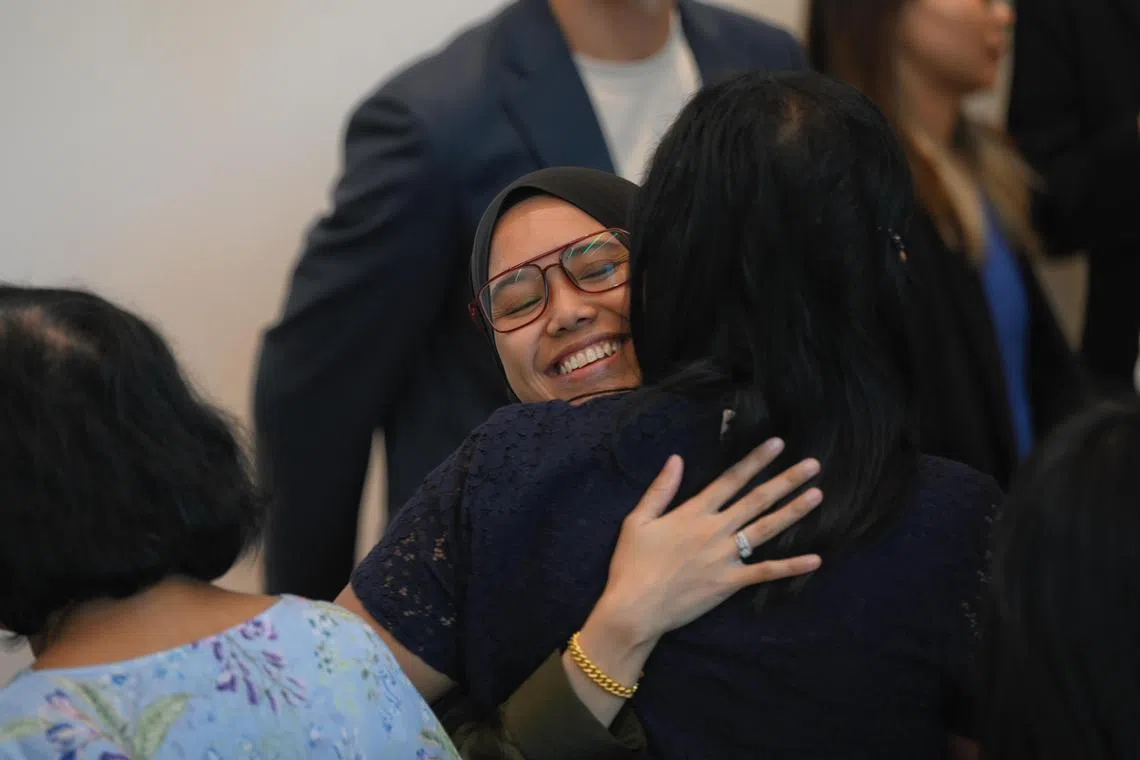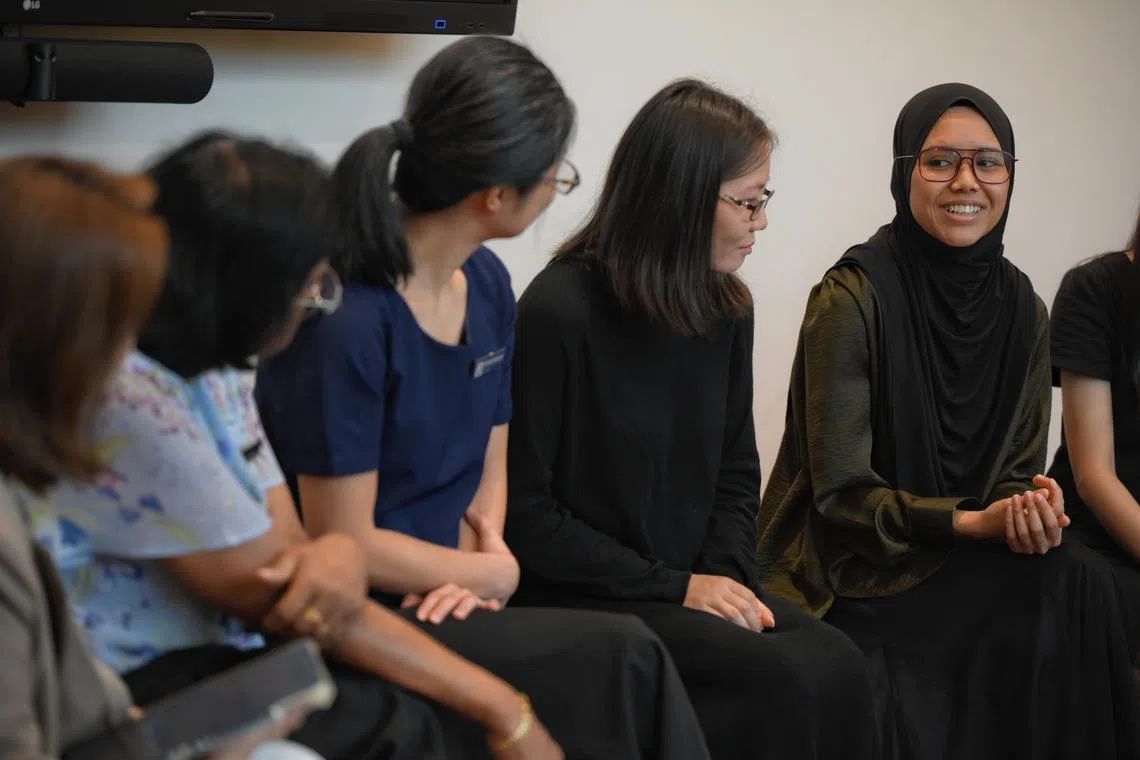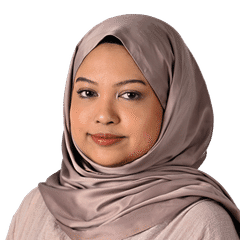65% of parents of kids with development needs require professional mental health support: Study
Sign up now: Get ST's newsletters delivered to your inbox

Ms Siti Nabilah was a participant of the DayOne programme, a two-year mental health support pilot.
ST PHOTO: MARK CHEONG
SINGAPORE - When Ms Siti Nabilah suspected that her second son was on the autism spectrum just like his older brother, she pleaded for her husband to attend the appointment to get the boy checked without her.
“I could not bear to hear that same diagnosis a second time,” said the 32-year-old, whose third child is a daughter with no developmental needs.
Countless questions ran through her head and she started to blame herself. “Am I the reason my sons have special needs? Did I do something wrong during my pregnancy? Was it my diet?”
The full-time caregiver said she felt hopeless and that it was hard to forgive herself. She started experiencing suicidal thoughts.
Ms Siti was referred to DayOne, a mental health support pilot scheme by KK Women’s and Children’s Hospital (KKH) which started in May 2022.
The $3.6 million, two-year scheme, jointly funded by KKH and philanthropic organisation Lien Foundation, aims to reach out to parents of young children with developmental needs to help them with their mental health.
The results of the pilot scheme were released in a briefing on April 23.
Through the programme’s mental health screening, it was found that 65 per cent of parents of young children with developmental needs suffered from mental health and/or psychosocial needs that required formal support.
Associate Professor Lourdes Mary Daniel, head and senior consultant at KKH’s Department of Child Development, said: “As paediatricians, our focus is the child. But in our clinics, we often see parents struggling.
“At the back of our minds, we always wondered if there was a way for paediatricians to do more for parents.”
About 7,000 children are diagnosed with developmental needs such as autism and language development delays in Singapore every year. About 70 per cent of these children are cared for by KKH’s Department of Child Development.
As part of the pilot programme, care coordinators reached out to parents who took their children for check-ups at the hospital, and asked them about their own mental health.
Of the 1,157 parents engaged by care coordinators from October 2022 to June 2023, a total of 626 parents consented to and completed mental health screening.
Nearly 440 of them were primary caregivers.
Around 41 per cent were found to have mild mental health and/or psychosocial needs, while around 25 per cent had moderate to severe needs, based on the questionnaires that were part of the screening.
Around 70 per cent of parents who were identified as having needs accepted referrals to support services, like to medical social workers, psychologists or psychiatrists. Support services under the programme, which are provided mostly by KKH, are free.
“It took a lot of talking and rapport building to help parents understand that looking after their own well-being was a way to look after their child,” Prof Mary Daniel said.

Some parents who declined support services felt that they did not have time to seek help for themselves and that the well-being of their child took precedence over their own.
ST PHOTO: MARK CHEONG
Some parents who declined support services felt that they did not have time to seek help for themselves and that the well-being of their child took precedence over their own.
Within 10 months of the initial mental health screening, the percentage of parents reporting moderate to severe levels of anxiety and/or depression symptoms dropped from 21.3 per cent to 10.6 per cent.
For Ms Siti, the programme helped her find strength to keep caring for her children.
“There were days when I felt overwhelmed and hopeless. I am thankful that after joining DayOne, I do not have to feel alone again. The programme not only saved me as the main caregiver to my children, but it also saved my marriage and my relationship with my husband,” she said.
“I am a much more positive, passionate and happier caregiver now. I have also noticed that my children are kissing me more and hugging me a little tighter.”
Lien Foundation programme director Ng Tze Yong said that although Singapore has put a spotlight on mental health in recent years, the focus on different groups may be uneven and some communities still remain in the shadows. This includes parents of children with developmental needs.
“We can see the impact when kids and parents are stronger at the start, the outcomes will stretch for many years to come,” he said.
Ms Siti hopes that other caregivers can come forward and seek help for themselves.
“If you are frequently depressed, feeling burnt out or anxious, these are signs that you should seek help. Don’t keep your problems to yourself and don’t be afraid to seek help because I’ve been in that position before,” she said.
“I hope more parents can be more aware that taking care of themselves will help them take care of their children and they can and should reach out for help if they need any.”



